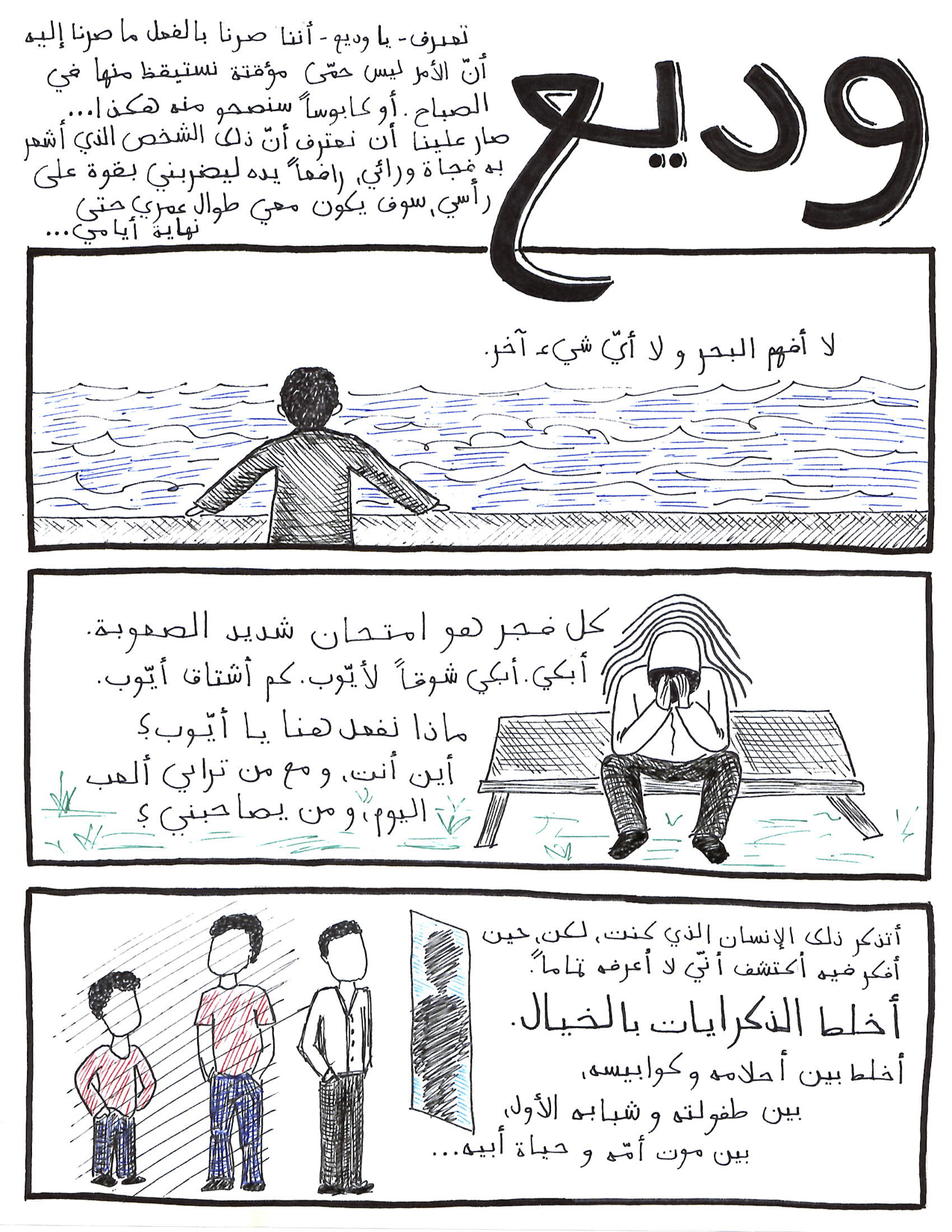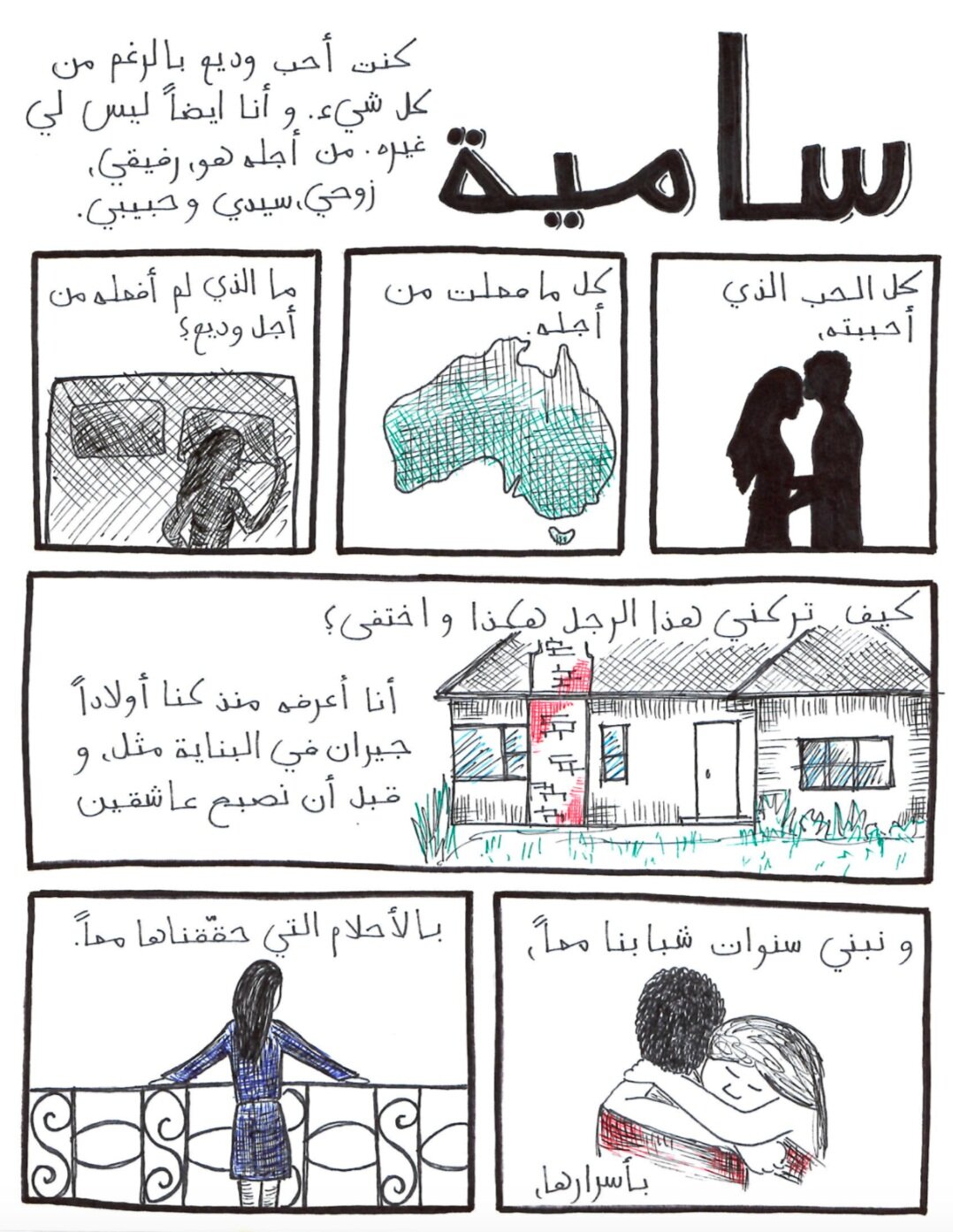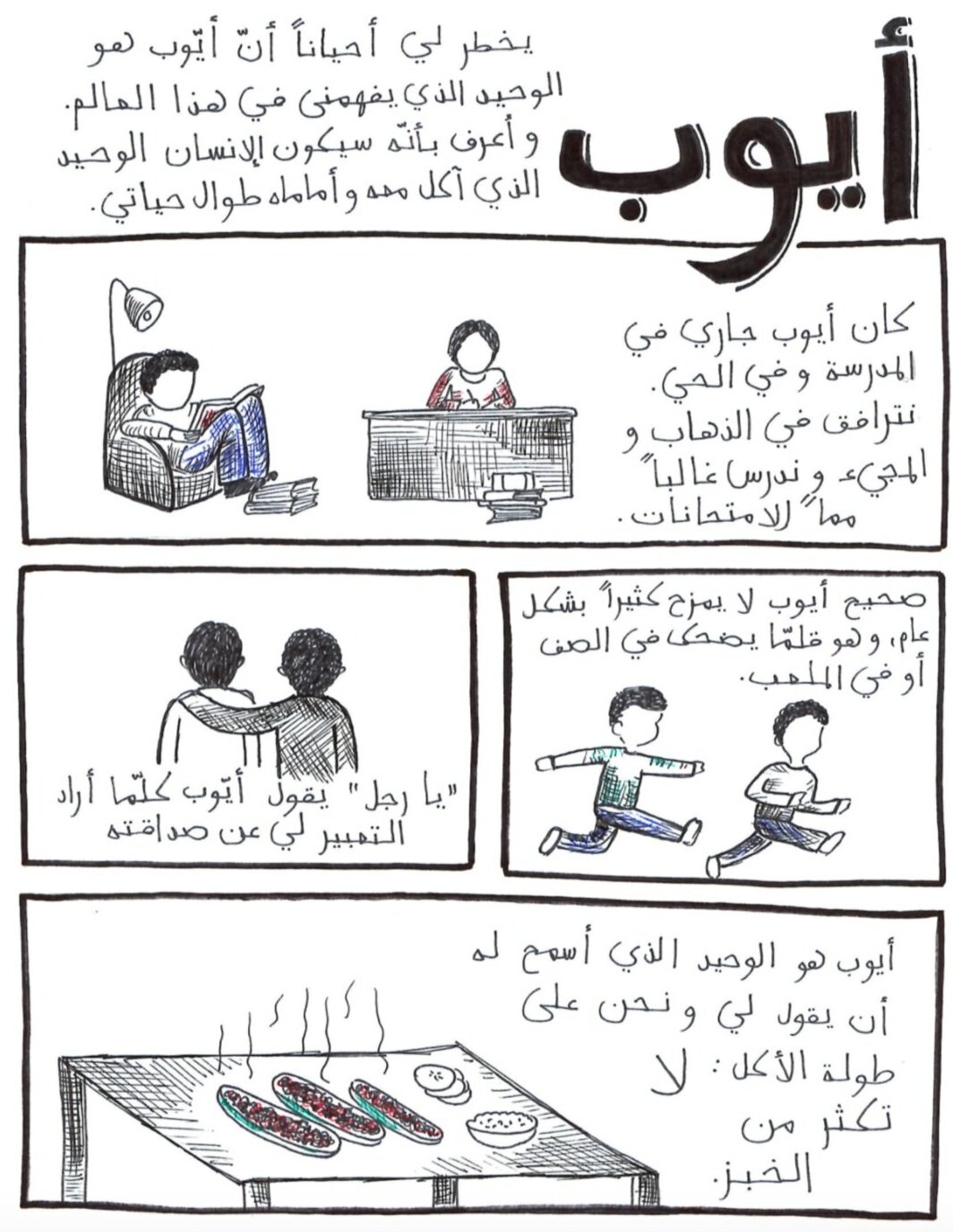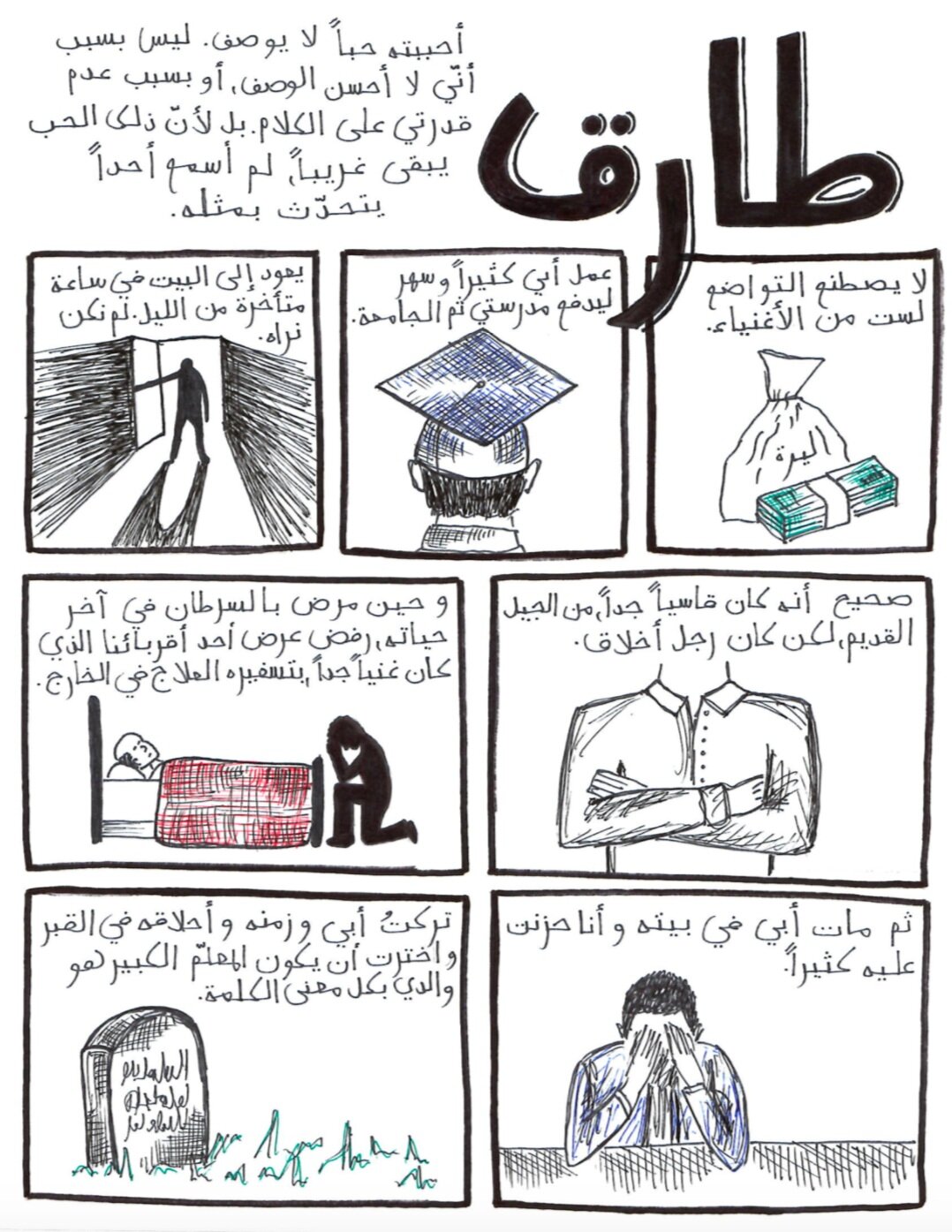by Daniela Flamini
This series of comic strips was my final project for Arabic 306, the last Arabic class I ever took at Duke [University]. It took 12 hours to complete. Each strip is based on one main character from the novel Sayyidi wa Habibi, written by the Lebanese author Hoda Barakat about what life was like during the Lebanese Civil War.
The morning I turned these in to Professor Maha Houssami, I was as proud of the project as I was heartbroken over having to say goodbye to the language classes that had transformed me as a student for so long. Learning Arabic takes barrels of courage and patient, profound humility, and a robust sense of humor, and I will forever be grateful for the classmates and professors who provided me with these for so many semesters.
There are some mistakes in the comics, of course, but as Professor Houssami taught me, blunders are a part of being human, of being original, and of being an Arabic student.
The author’s translations can be found below.
Page One
Wadie:
You have to admit to yourself, Wadie, that we have become who we have become. This is not a temporary fever we will wake up from in the morning, or a nightmare… We have to admit that the person I suddenly feel behind me, raising his hand to hit me hard on the head, will be with me all my life, until the end of my days…
I don’t understand the ocean, and I don’t understand anything else.
Every morning is a difficult test. I cry. I cry with longing for Ayoub. How I miss him. What do we do here, Ayoub? Where are you, and who accompanies me now?
I think of that man I once was, and when I ponder on him, I discover that I do not know him completely. I mix memories with my imagination. I mix between my dreams and my nightmares, between my childhood and my young adulthood, between my mother’s death and my father’s life.
Page Two
Samia:
How I loved Wadie above all else. I didn’t have anyone else. He was my companion, my husband, my master and my lover.
All the love that I gave him, all the things I did for him. What didn’t I do for Wadie?
How could this man have left me like this, and disappeared? I’ve known him since we were children, neighbors in the same building, before we became lovers. We built the years of our youth together, with our secrets, with the dreams we wanted to achieve together.
Page Three
Ayoub:
Sometimes I feel like Ayoub is the only one in this world who understands me. And I know that he will be the only man who I’ll ever eat with and in front of for the rest of my life.
Ayoub would run in the school and in the neighborhood. We’d accompany each other in the going and coming, and we’d study together for exams.
It’s true that Ayoub didn’t joke a lot in general, but he laughed a little in class and in the playground. “Hey, man,” he’d call me when he wanted to express his friendship.
Ayoub is the only one I’d allow to tell us at the dinner table, “Don’t eat too much bread.”
Page Four
Tariq:
I loved him with an indescribable love. Not because I don’t have the time, or because of my inability with words. But because it was a strange love, of which I have heard no one speak similarly.
I don’t speak with false modesty when I say I’m not rich. My father worked hared to pay for my schooling. He’d return home in the late hours of the night. We never saw him.
It’s true he was very cruel, of the old generation, but he was a man of morals. When he became sick with cancer at the end of his life, he rejected a wealthy relative’s offer to get treatment abroad.
Then he died in his house, and I was very sad over it. I left my father and his morals in the grave, and chose to be a better teacher than him in every sense of the word.
About the Author
Daniela Flamini is a 2019 graduate of Duke University who now works in Miami, Florida as a freelance journalist. You can reach her at daniela.flamini@duke.edu.




